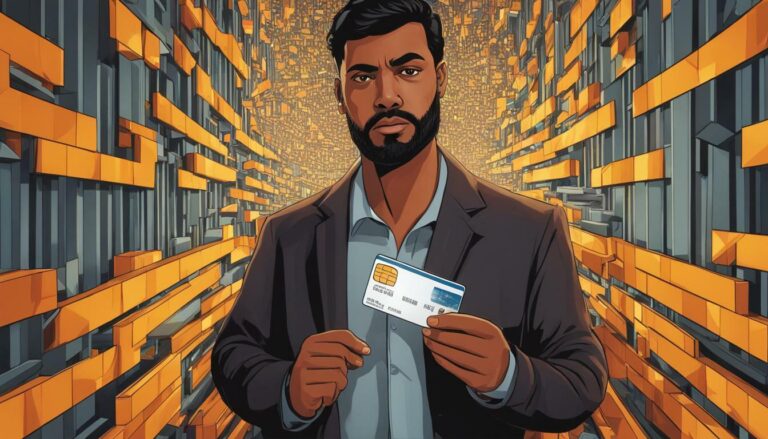Guide: Removing Late Payments From Credit Report Due to COVID

Are you struggling with late payments on your credit report due to the impact of COVID-19? Follow our guide to learn how to remove these late payments and improve your credit score.
Key Takeaways:
- Contact your creditor and explain the COVID-19 circumstances that led to late payments.
- Provide documentation to support your claim of pandemic-related financial hardship.
- If the creditor refuses to remove the late payment, escalate your concerns to the creditor’s executive resolutions department.
- If necessary, file a complaint with the Consumer Financial Protection Bureau for further assistance.
- Consider hiring a reputable credit repair company if other measures fail.
Understanding the Impact of Late Payments on Your Credit Score
Late payments can significantly impact your credit score, so it’s important to understand how they are calculated and the specific challenges posed by COVID-19. When you make a late payment on a credit account, it can stay on your credit report for up to seven years, dragging down your credit score and making it harder to qualify for loans or favorable interest rates.
Credit scoring models take into account several factors when calculating your credit score, and one of the most influential factors is your payment history. Payment history accounts for approximately 35% of your credit score, making it crucial to ensure timely payments. A single late payment can cause a noticeable drop in your credit score, especially if you have an otherwise good payment history.
The COVID-19 pandemic has presented unique challenges for many individuals, resulting in financial hardships and job loss. As a result, late payments have become more common. It’s important to note that credit reporting agencies have implemented some temporary measures to mitigate the impact of COVID-19 on credit reports. However, it’s still essential to address any late payments on your credit report to prevent long-term damage to your credit score.
| Steps to Address Late Payments |
|---|
| Contact the Creditor |
| Explain the COVID-19 Circumstances |
| Provide Supporting Documentation |
To address late payments on your credit report, start by contacting the creditor responsible for reporting the late payment. Explain the circumstances surrounding the late payment, emphasizing that it was a result of the COVID-19 pandemic. Be prepared to provide any necessary documentation, such as proof of job loss or medical expenses related to the pandemic. Communicating with your creditor in a professional and proactive manner may increase your chances of having the late payment removed from your credit report.
🚨 TUIC Errors + Low Credit Score?
CreditScoreIQ helps you build credit faster by reporting utility bills to all 3 bureaus—while you dispute errors.
Start Building Credit Today →If the creditor is unwilling to remove the late payment, consider reaching out to their executive resolutions department. This department often has more authority to make decisions and may be more willing to help in exceptional circumstances. You may also choose to file a complaint with the Consumer Financial Protection Bureau, which can investigate disputes and take action against creditors who are not compliant with lending regulations.
Alternatively, you may decide to hire a reputable credit repair company to assist you in addressing late payments on your credit report. When selecting a credit repair company, be sure to research their reputation, check for proper licensing, and avoid any companies that charge upfront fees. A reputable credit repair company can guide you through the dispute process and assist in rebuilding your credit after the COVID-19 pandemic.
Key Takeaways:
- Late payments can significantly impact your credit score and make it harder to qualify for loans or favorable interest rates.
- Payment history accounts for approximately 35% of your credit score, making timely payments crucial.
- The COVID-19 pandemic has resulted in financial hardships, leading to an increase in late payments.
- To address late payments, contact the creditor, explain the COVID-19 circumstances, and provide supporting documentation.
- Consider reaching out to the creditor’s executive resolutions department, filing a complaint with the Consumer Financial Protection Bureau, or hiring a reputable credit repair company.
| Contact the Creditor | Explain the COVID-19 Circumstances | Provide Supporting Documentation |
|---|---|---|
| Inquire about the late payment and express your willingness to resolve the issue. | Emphasize that the late payment was a result of the COVID-19 pandemic. | Provide any necessary documentation, such as proof of job loss or medical expenses related to the pandemic. |
Contacting the Creditor and Explaining the COVID-19 Circumstances
The initial step in removing late payments from your credit report is to contact the creditor and explain the circumstances surrounding the late payment, specifically how COVID-19 impacted your ability to make timely payments. This is a crucial step in the credit repair process, as it allows you to provide important documentation and evidence to support your claim.
When reaching out to the creditor, be sure to clearly outline the challenges you faced due to the pandemic, such as job loss, reduced income, or increased medical expenses. Explain how these circumstances directly affected your ability to make payments on time. It’s important to be honest and provide any relevant supporting documentation, such as termination letters, unemployment benefits statements, or medical bills.
During the conversation with the creditor, remain calm and professional, expressing your desire to rectify the situation and maintain a positive credit history. Request that they consider removing the late payment from your credit report as a gesture of goodwill given the extraordinary circumstances. While there is no guarantee that the creditor will agree, it is crucial to present a well-documented and compelling case.
Sample Call Script:
“Hello, my name is [Your Name], and I am reaching out regarding a late payment listed on my credit report. I wanted to explain the circumstances surrounding this late payment and how COVID-19 has directly impacted my ability to make timely payments. Due to the pandemic, I experienced a significant reduction in income and faced unexpected medical expenses. I have attached supporting documents, such as my termination letter and medical bills, to illustrate these extenuating circumstances. I understand the importance of maintaining a positive credit history and was hoping you could consider removing this late payment from my credit report as a gesture of goodwill given the extraordinary circumstances. Thank you for your attention to this matter.”
Remember to take detailed notes of your conversation with the creditor, including the date, time, and the name of the representative you spoke with. Keeping accurate records will be helpful if you need to escalate the matter or provide evidence in the future.
If the creditor refuses to remove the late payment, don’t lose hope. There are still additional steps you can take to dispute the late payment and improve your credit score. The next section will explore these options and provide strategies for rebuilding your credit during and after the COVID-19 pandemic.
Table: List of Supporting Documentation
| Documentation | Purpose |
|---|---|
| Termination Letter | Evidence of job loss due to COVID-19 |
| Unemployment Benefits Statements | Proof of reduced income during the pandemic |
| Medical Bills | Documentation of unexpected medical expenses |
Taking Additional Measures to Remove Late Payments
If your creditor does not agree to remove the late payment from your credit report, there are further actions you can take to dispute the negative information and work towards rebuilding your credit. These steps can help you navigate through the credit repair process and improve your credit score.
1. Reach out to the Creditor’s Executive Resolutions Department
If the initial contact with your creditor did not result in the removal of the late payment, it’s worth reaching out to their executive resolutions department. This department handles escalated issues and may have more authority to make decisions regarding your credit report. Be sure to explain your situation clearly, providing any supporting documentation that can strengthen your case. Stay persistent and keep records of all correspondence.
2. File a Complaint with the Consumer Financial Protection Bureau (CFPB)
If your efforts to resolve the late payment issue directly with the creditor have been unsuccessful, you can file a complaint with the CFPB. The CFPB is a government agency that helps consumers with financial disputes. They will review your case and work with the creditor to find a resolution. Make sure to provide all relevant details and documentation when submitting your complaint to the CFPB.
3. Consider Hiring a Reputable Credit Repair Company
If you feel overwhelmed or unsure about the credit repair process, working with a reputable credit repair company can be a viable option. However, it is crucial to research and choose a company that is properly licensed and does not charge upfront fees. A reliable credit repair company will assess your credit report, dispute any erroneous information, and provide guidance on how to rebuild your credit. Ensure you thoroughly understand their services, fees, and timeline before making a decision.
Remember, while disputing late payments on your credit report, it’s essential to continue practicing good financial habits. Make timely payments, keep credit utilization low, and consider reaching out to your lenders for future payment deferrals if needed. Understanding your rights as a consumer and staying informed about your credit report will empower you in your journey towards a healthier credit profile.
| Action Steps | Details |
|---|---|
| Reach out to the Creditor’s Executive Resolutions Department | Explain your situation and provide supporting documentation |
| File a Complaint with the CFPB | Include all relevant details and documentation |
| Consider Hiring a Reputable Credit Repair Company | Research and choose a licensed company with no upfront fees |
Filing Complaints and Hiring a Credit Repair Company
If your attempts to remove the late payment through direct communication with the creditor have been unsuccessful, you can file a complaint with the Consumer Financial Protection Bureau or consider hiring a credit repair company to assist you in the process.
Filing a complaint with the Consumer Financial Protection Bureau (CFPB) can be an effective way to address unresolved issues with your creditor. The CFPB is a government agency that helps protect consumers in the financial marketplace. To file a complaint, visit their official website and provide detailed information about your situation. The CFPB will review your complaint and work with the creditor to seek resolution.
Alternatively, you may choose to hire a reputable credit repair company to assist you in the process. It’s important to research and select a company that is trustworthy and complies with industry regulations. Look for a credit repair company that does not charge upfront fees and offers transparent pricing. Additionally, ensure that the company is properly licensed to provide credit repair services.
| Benefits of Hiring a Credit Repair Company: |
|---|
| 1. Expertise: Credit repair companies have experience dealing with creditors and credit bureaus, which can help expedite the process and increase the chances of success. |
| 2. Time-Saving: Managing the credit repair process can be time-consuming. Hiring a credit repair company allows you to focus on other priorities while professionals handle the necessary steps. |
| 3. Legal Knowledge: Reputable credit repair companies are well-versed in credit laws and regulations. They can navigate complex legal situations and advocate on your behalf. |
| 4. Documentation Assistance: Credit repair companies can help you gather and organize the necessary documentation to support your claim and improve your chances of success. |
Remember, whether you choose to file a complaint with the CFPB or hire a credit repair company, it’s important to remain proactive and stay involved in the process. Stay informed about your rights and responsibilities as a consumer and regularly monitor your credit report for updates and improvements.</p
Conclusion
Removing late payments from your credit report can be a challenging process, but with perseverance and the right strategies, you can improve your credit score and regain financial stability in the aftermath of the COVID-19 pandemic.
The first step in this journey is to contact your creditor and explain that the late payment was a result of the pandemic. Provide any necessary documentation, such as job loss or medical bills, to support your claim. It’s important to clearly communicate the circumstances and emphasize the temporary nature of the late payment.
If the creditor does not agree to remove the late payment, there are additional steps you can take. Reach out to the creditor’s executive resolutions department, where decision-makers may have more authority to assist you. If that doesn’t yield results, consider filing a complaint with the Consumer Financial Protection Bureau, who can investigate and potentially intervene on your behalf.
An alternative option is to hire a reputable credit repair company. However, it’s crucial to research and select a company that does not charge upfront fees and is properly licensed. They can guide you through the dispute process and provide expertise in credit repair strategies.
Lastly, if you are facing future payment deferrals, it’s important to proactively contact your lender and inquire about their deferment policies and any potential impact on your credit scores. By staying informed and actively managing your credit, you can rebuild your financial standing and position yourself for a brighter future.
FAQ
How can I remove late payments from my credit report due to COVID-19?
The first step is to contact the creditor and explain that the late payment was a result of the pandemic, providing any necessary documentation. If the creditor does not agree to remove the late payment, you can reach out to the creditor’s executive resolutions department, file a complaint with the Consumer Financial Protection Bureau, or hire a reputable credit repair company.
What should I look for when hiring a credit repair company?
It is important to research and choose a credit repair company that does not charge upfront fees and is properly licensed. Look for companies with positive customer reviews and a track record of success in removing late payments from credit reports.
Will disputing a late payment affect my credit score?
Disputing a late payment itself will not directly impact your credit score. However, if the late payment is removed from your credit report, it may have a positive effect on your credit score by improving your payment history.
Do late payments due to COVID-19 qualify for removal from credit reports?
Each creditor may have different policies regarding the removal of late payments due to COVID-19. It is important to contact your creditor, provide documentation, and explain your circumstances to determine if they are willing to remove the late payment from your credit report.
Will requesting a payment deferral affect my credit score?
Requesting a payment deferral may not directly affect your credit score, but it is important to contact your lender and inquire about their deferment policies and any potential impact on credit scores. Some lenders may report deferred payments as not late or as current, while others may report them as late or delinquent.
Source Links
- https://www.consumerfinance.gov/about-us/blog/protecting-your-credit-during-coronavirus-pandemic/
- https://007creditagent.com/remove-a-late-payment-during-covid-19/
- https://www.imaxcredit.com/how-to-remove-late-payments-incurred-during-covid-19/
Ready to Improve Your Credit?
Disputing TUIC errors is step one. Step two? Boost your score by reporting utility payments with CreditScoreIQ.
Get Started Now (Only $1 Trial) →3-bureau reporting • $1M identity insurance • Dark web monitoring




